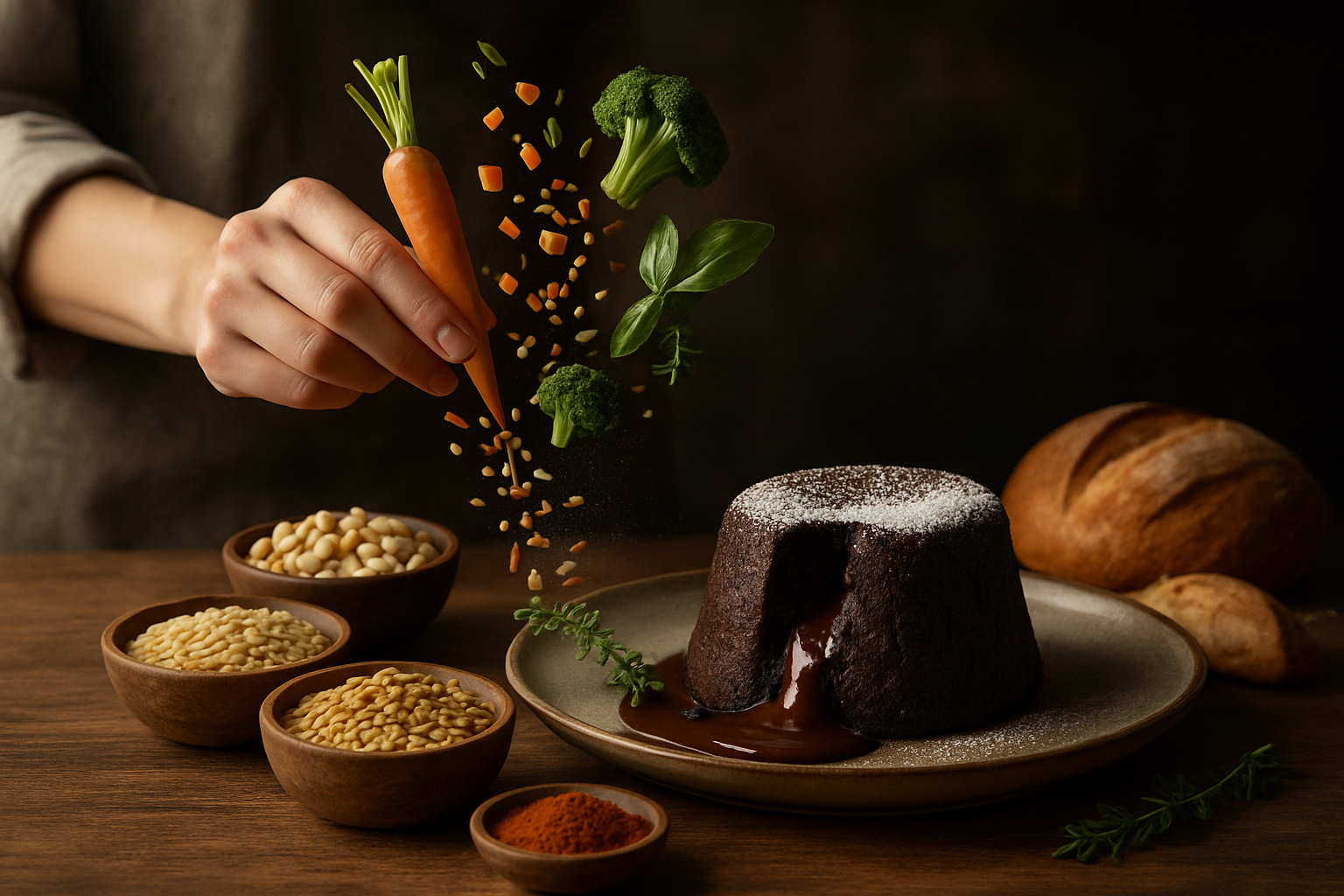Culinary Alchemy: Transforming Vegetables into Desserts
Imagine indulging in a decadent chocolate mousse, only to discover it's made from avocados. Or savoring a creamy cheesecake crafted from cashews. Welcome to the world of vegetable-based desserts, where culinary innovation meets nutritional prowess. This exciting trend is revolutionizing the way we think about sweets, offering a healthier alternative without compromising on taste or texture.

Nature’s Candy: Unlocking Vegetable Sweetness
Vegetables possess an inherent sweetness that’s often overlooked. When prepared correctly, ingredients like sweet potatoes, carrots, and beets can rival traditional sweeteners. Roasting or slow-cooking these veggies caramelizes their natural sugars, intensifying their flavors. This process not only reduces the need for added sugars but also imparts a complex depth of flavor that refined sugars simply can’t match.
Texture Wizardry: Achieving Dessert-like Consistency
One of the most impressive aspects of vegetable-based desserts is their ability to mimic traditional textures. Avocados, when blended, create a silky mousse-like consistency perfect for puddings or pie fillings. Puréed cauliflower can be transformed into a convincing ice cream base, while zucchini adds moisture to cakes and quick breads without altering the flavor. These clever substitutions not only boost nutritional value but also cater to those with dietary restrictions.
Nutritional Powerhouses: Guilt-free Indulgence
By incorporating vegetables into desserts, we’re not just creating novel treats; we’re boosting their nutritional profile. Vegetable-based desserts are often lower in calories and higher in fiber, vitamins, and minerals compared to their traditional counterparts. This allows for guilt-free indulgence, making it easier to satisfy sweet cravings while maintaining a balanced diet. It’s a win-win situation for both taste buds and health-conscious individuals.
Culinary Creativity: Pushing Flavor Boundaries
The vegetable dessert trend is inspiring chefs to push the boundaries of flavor combinations. Unexpected pairings like chocolate and beets, or strawberry and rhubarb, are becoming increasingly popular. These innovative flavor profiles challenge our perceptions of what dessert should taste like, opening up a whole new world of culinary possibilities. It’s an exciting time for adventurous eaters and experimental cooks alike.
Sweet Tips & Veggie Facts
• Swap mashed bananas with puréed zucchini in baked goods for a lower-sugar option
• Roasted sweet potato makes an excellent base for vegan “cheesecake”
• Beets can naturally color frostings and batters without artificial dyes
• Avocado can replace butter in many baking recipes, offering heart-healthy fats
• Cauliflower’s neutral flavor makes it ideal for “nice cream” bases
• Carrots contain more sugar than any other vegetable except for beets
In conclusion, the world of vegetable-based desserts is a testament to culinary innovation and creativity. By reimagining the role of vegetables in our diets, we’re not only creating healthier alternatives to traditional sweets but also expanding our palates and challenging our preconceptions about food. As this trend continues to evolve, it promises to revolutionize the way we approach desserts, making indulgence a guilt-free and nutritious experience.






